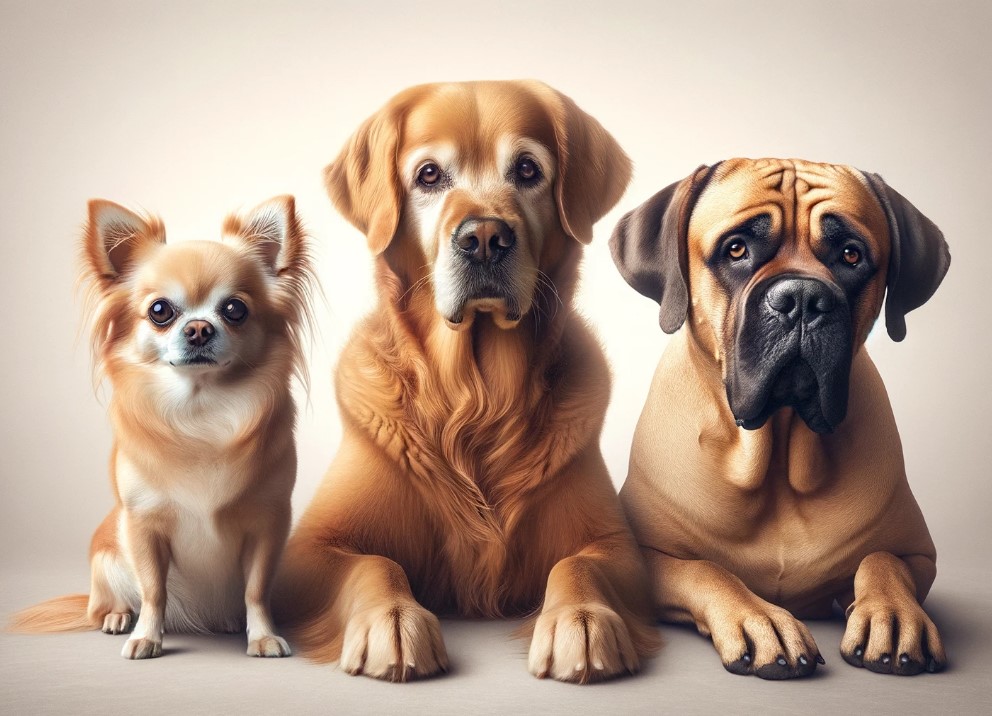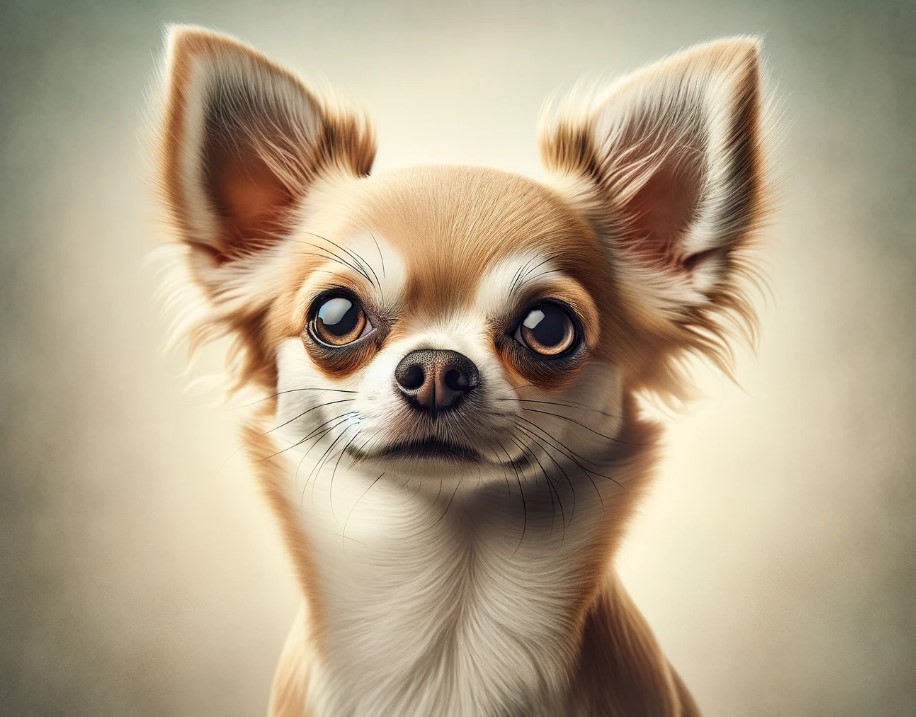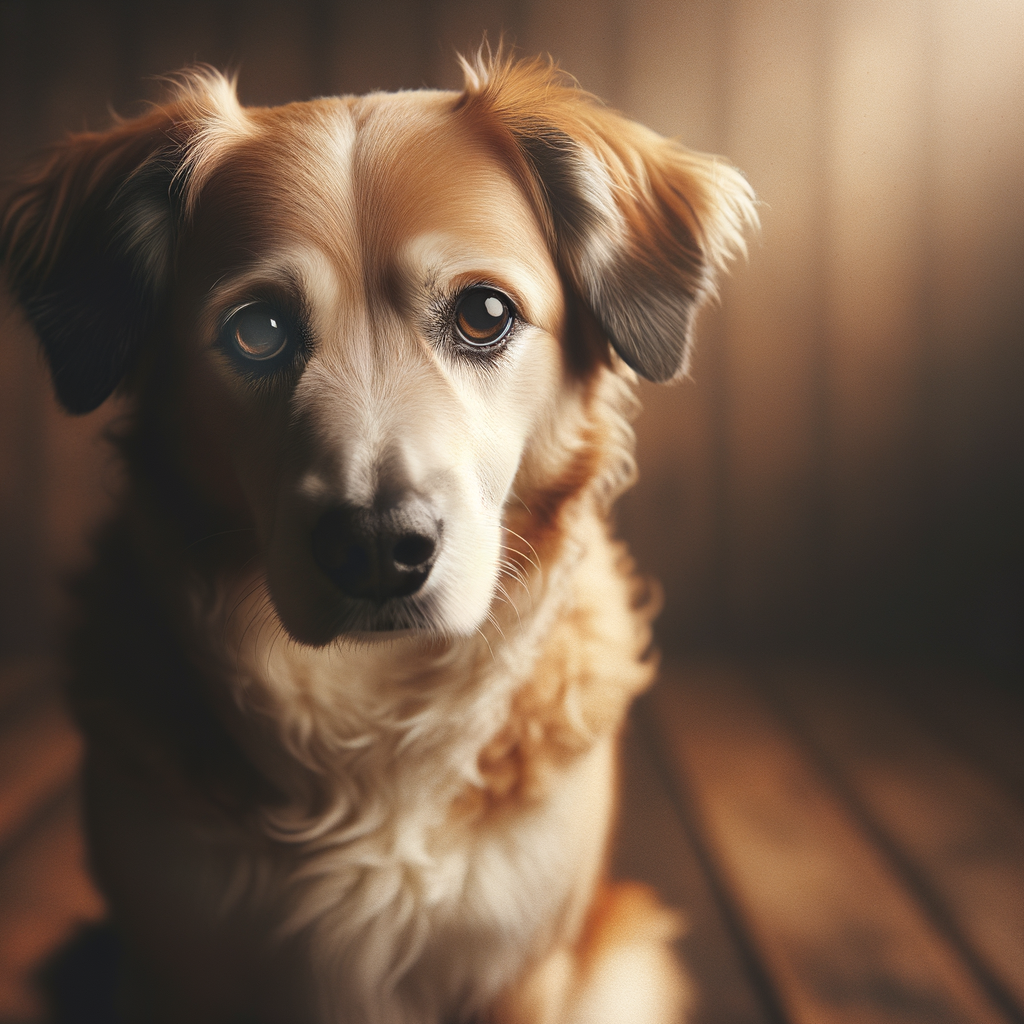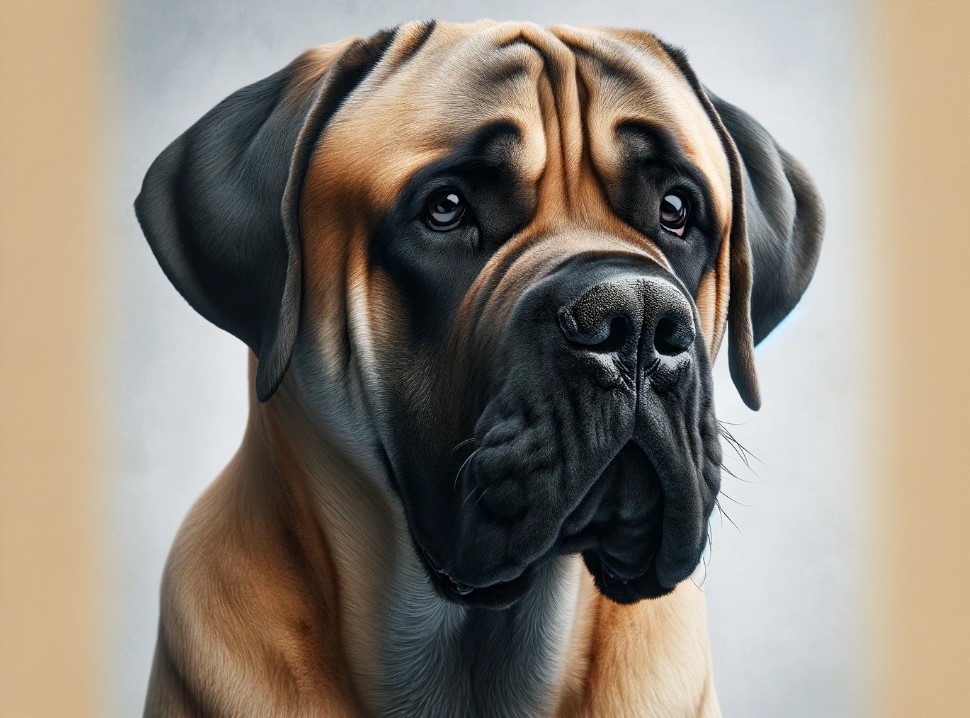Have you ever wondered why some dogs seem to demand constant attention and affection? Welcome, my friends, to the fascinating world of emotionally needy dog breeds.

Just like us humans, our furry friends also have their unique set of emotional needs and traits. Some breeds, more than others, crave affection and attention from their pet parents. Understanding these unique traits will not only help you cater to your canine companion’s needs better but also strengthen your bond with them. So, let’s dive deep into the intriguing details of these affectionate canines and their emotional requirements.
Our journey begins with understanding the science behind canine affection and attachment. Dogs, much like humans, form emotional bonds, and their behaviors are shaped by these bonds. Breeding also plays a significant role in determining a dog’s emotional needs. Over generations, certain traits have been bred into specific breeds, making them more prone to being emotionally needy.
Take, for instance, the Labrador Retriever and the Golden Retriever, two of the top emotionally needy breeds. These dogs are known for their loyalty and friendliness. They thrive on human interaction and often suffer when left alone for extended periods. Similarly, small breeds like the Cavalier King Charles Spaniel and the Chihuahua, despite their diminutive stature, have a massive appetite for your love and attention!
On the other hand, don’t be fooled by the imposing size of the Great Dane or the Mastiff. Beneath their intimidating exterior, you’ll find a soft heart that yearns for your love and affection. They are essentially big babies that need constant love.
The Science Behind Canine Affection and Attachment
Have you ever wondered what makes your dog wag its tail in sheer joy at the sight of you or whine in distress when you leave? The answer lies in the fascinating world of canine psychology and the inherent traits of specific dog breeds. As a holistic veterinarian, I’ll guide you through this enchanting journey, helping you understand why certain dog breeds are more emotionally needy than others and how it influences their behavior.
Exploring the Psychology of Dog Bonds
Your dog’s affectionate behavior is not just a random fluke, but a complex blend of genetics, environment, and their unique relationship with you. Research shows that dogs, much like humans, have a hormone called oxytocin, often dubbed the “love hormone.” This hormone, released when your dog interacts with you, contributes to the bond they share with their humans.
Dogs are pack animals by nature, and their instinct is to form strong emotional bonds with their pack members. The domestication of dogs has adapted this instinct to include their human families. This is why, when you’re away, your dog might feel anxious or display signs of separation anxiety. This behavior is more pronounced in some breeds than others, primarily due to their genetic predisposition and upbringing.
How Breeding Influences a Dog’s Emotional Needs
Over generations, humans have selectively bred dogs to exhibit certain traits, creating a diverse array of breeds, each with its unique characteristics. This selective breeding process has shaped not just the physical attributes of different breeds, but also their emotional traits.
For instance, breeds like Labrador Retrievers and Golden Retrievers were bred to work closely with humans as gun dogs, retrieving game for hunters. Their breeding instilled in them a deep need for human interaction and approval, making them one of the most emotionally needy dog breeds today.
On the other hand, small breeds like the Cavalier King Charles Spaniel and Chihuahua were often kept as companion dogs for the nobility. Bred for their lap-dog qualities, they still retain their need for constant human contact. These small breeds with big hearts often rely heavily on their human caregivers for emotional support.
Similarly, large breeds like the Great Dane and Mastiff, despite their imposing size, are in reality gentle giants craving love and attention. Bred as guard dogs, they were expected to remain close to their human families, which might explain their high emotional needs and attachment to their owners today.
Breeds also differ in their ability to handle being alone. While some breeds are independent and can handle solitude, others, often coined “Velcro dogs,” prefer to stick by your side and might experience distress when left alone.

Top Emotionally Needy Dog Breeds
Labrador Retriever: The Loyal Companion
Meet the Labrador Retriever, renowned as one of the most emotionally needy dog breeds. These dogs are known to be loyal, friendly, and extremely affectionate. They live for their human companions and thrive on attention and interaction. Labradors are not just popular for their good looks and intelligence, but also for their insatiable desire for human companionship.
Labradors form intense emotional bonds with their owners. They exhibit traits of separation anxiety if left alone for extended periods. These dogs love to be involved in every aspect of family life, from playtime to meal times, and even bedtime. It’s essential to understand this need for companionship and provide them with the time and attention they require.
Golden Retriever: The Friendly Soul
Golden Retrievers are another breed renowned for their emotional dependence. These dogs are often seen in roles like therapy and assistance due to their empathetic nature. Golden Retrievers are incredibly affectionate, friendly, and reliable. They are eager to please and thrive on positive reinforcement, making them one of the most needy dog breeds.
Golden Retrievers crave human interaction and are happiest when they are involved in family activities. These dogs can become anxious and demonstrate destructive behaviors if they are left alone for too long. Providing mental stimulation, physical exercise, and enough affection is key to keeping these dogs healthy and happy.
Cavalier King Charles Spaniel: The Gentle Lap Dog
When it comes to emotionally needy small dog breeds, the Cavalier King Charles Spaniel is a standout. Despite their royal name, these dogs are anything but aloof. They are known for their affectionate and sociable nature, and they love nothing more than to cuddle on their owners’ laps.
Cavalier King Charles Spaniels form deep emotional bonds with their humans and can experience separation anxiety when left alone. These dogs are true companion animals and don’t like to be excluded from family activities. Offering lots of love, attention, and interaction is crucial for this breed.
Chihuahua: The Tiny Attention Seeker
Don’t let their small size fool you; Chihuahuas crave attention just as much as their larger counterparts. These tiny dogs have a big personality and an even bigger desire for human companionship.
Chihuahuas are highly affectionate with their family members and demand a lot of attention. They are notorious for their possessiveness and can become anxious or even aggressive when their emotional needs are not met. Ensuring plenty of quality time and interaction is essential for this breed.
Great Dane: The Gentle Giant’s Need for Affection
Great Danes, despite their intimidating size, are famously known as ‘gentle giants.’ They are incredibly affectionate and emotionally dependent on their owners. These dogs like to stay close to their human companions and enjoy being involved in family activities.
Great Danes, like many emotionally needy dog breeds, can exhibit signs of separation anxiety when left alone. Providing enough time, love, and attention is crucial for these big-hearted dogs.
Mastiff: The Big Baby That Needs Constant Love
Mastiffs may be large and imposing, but they are essentially big babies with a need for constant love. These dogs are incredibly affectionate and form strong emotional bonds with their owners. Mastiffs are not aloof or independent; they thrive on human interaction and companionship.
Like many other emotionally needy dog breeds, Mastiffs can become anxious and show signs of separation anxiety when left alone. To keep your Mastiff happy and healthy, it’s crucial to provide the time, attention, and affection they crave.
Small Breeds with Big Hearts
Cavalier King Charles Spaniel: The Gentle Lap Dog
When it comes to emotionally needy dog breeds, the Cavalier King Charles Spaniel is a breed that loves to be near its humans. These adorable canines are known for their gentle demeanor and a deep need for companionship. Bred to be lap dogs for the British Royalty, Cavaliers have a history of being affectionate pets.
On an average day, these dogs would choose snuggling on the couch with you over playing fetch in the backyard. They hate being left alone and would follow you around the house like your shadow. Their expressive eyes, soft fur, and generally amiable personality makes them great emotional support dogs. Plus, their compact size makes them perfect companions for those living in smaller homes or apartments.
Chihuahua: The Tiny Attention Seeker
Don’t be fooled by their tiny size – Chihuahuas have a massive capacity for love. These little dogs are incredibly affectionate and can form deep bonds with their owners. As one of the most emotionally needy dog breeds, Chihuahuas require a lot of attention.
Known for their bold, sassy nature, these dogs have a big personality in a small package. They are known to be fiercely loyal to their owners and often show signs of separation anxiety when left alone. With their adorable looks and fiesty spirit, Chihuahuas can easily capture your heart. But remember, they require a lot of love and care in return.
As a dog parent, it’s vital to meet the emotional needs of these small breeds. Both Cavalier King Charles Spaniels and Chihuahuas thrive on human interaction and love. Leaving them alone for extended periods can lead to anxiety and behavioral issues. Instead, ensure they have plenty of love, affection, and attention to keep them happy and healthy.
These breeds may be small in size, but they have big hearts that overflow with love for their humans. If you have the time and patience to meet their emotional needs, these adorable little fur babies can fill your home with joy and unconditional love.
Remember, as you consider bringing one of these emotionally needy dog breeds into your life, it’s essential to understand their emotional needs completely. Being prepared will ensure that your furry friend is as happy and healthy as they can be, which will undoubtedly make your bond with them even more robust and rewarding.

Large Breeds That Crave Your Love
When we think of emotionally needy dog breeds, our minds often wander to small lap dogs that constantly seek our attention. However, it might surprise you to know that some of the most affectionate canines are actually large breeds. These gentle giants crave your love and attention, and their emotional needs are just as significant, if not more so, than their smaller counterparts.
Great Dane: The Gentle Giant’s Need for Affection
Great Danes, often referred to as ‘gentle giants’, are one of the most emotionally needy large dog breeds. Despite their imposing size, Great Danes are incredibly gentle and sensitive creatures. They have a deep-rooted desire to be part of the family and they crave human companionship.
Great Danes are known to form strong bonds with their human families and can become anxious or depressed if left alone for too long. They have a tendency to seek constant physical contact, often leaning against their owners or attempting to sit on their laps – a humorous sight given their size! Despite their need for affection, Great Danes are generally easygoing and patient, making them excellent family pets.
Mastiff: The Big Baby That Needs Constant Love
Mastiffs, another large breed, are also known for their emotional neediness. Often described as ‘big babies’, Mastiffs crave constant love and attention from their owners. They are incredibly loyal and protective, forming deep emotional bonds with their human families.
Mastiffs are known to be quite sensitive and can become anxious or upset if they feel neglected. They thrive on human interaction and physical contact, often showing their affection through leaning, nuzzling, and even drooling on their owners. Despite their size, Mastiffs are gentle and loving, making them perfect companions for those who can provide them with the affection they crave.
In general, these large breeds require a lot of time, attention, and affection from their owners. They need to be included in family activities and given plenty of opportunities for physical contact and interaction. Their emotional needs may be high, but the love and loyalty they give in return make them truly rewarding companions.
It’s important to remember that every dog is an individual, and while breed can influence a dog’s emotional needs, there are always exceptions. Whether your dog is a small breed with a big heart or a large breed that craves your love, understanding their emotional needs and providing them with the affection they crave is key to a happy and healthy dog-human relationship.
Remember, owning an emotionally needy dog breed can be a challenge, but it’s also an incredibly rewarding experience. These affectionate canines offer unconditional love and companionship, making them the perfect addition to any family willing to meet their emotional needs.
Emotionally Needy Dog Breeds: The Affectionate Canines That Love to Love
The Most Affectionate Small Dog Breeds
When it comes to emotionally needy dog breeds, size doesn’t matter. Some of the most affectionate dogs are indeed small breeds. Here are a few to consider:
– French Bulldog: Known for its playful and adaptable nature, the French Bulldog absolutely loves human company. They rarely bark and are excellent family companions.
– Dachshund: These little “hot dogs” are notorious for their need for companionship. Leaving them alone for too long results in vocal protests and potential destructive behavior.
– Shih Tzu: Originally bred for companionship, these little furballs are all about being around their people. They are excellent lap dogs and are happiest when they get to spend lots of time with you.
– Pomeranian: These little balls of fluff are known for their big personalities and love of attention. They’re great companions for someone who can spend a lot of time pampering them.
The Most Affectionate Large Dog Breeds
Not to be outdone, several large breeds are also known for their emotional needs. If you’re looking for a big dog to shower with affection, consider these breeds:
– Collie: A popular breed thanks to the famous Lassie, Collies are loyal, loving, and crave human companionship. They are highly sensitive to their owner’s emotions and need consistent interaction.
– Irish Wolfhound: Known as gentle giants, these dogs are extremely devoted to their human families. Despite their size, they are known for being emotionally needy and require lots of love and attention.
– Newfoundland: These dogs, often referred to as “nanny dogs,” are incredibly gentle and devoted. They thrive on human interaction and hate being left alone.
– German Shepherd: Famous for their loyalty, German Shepherds form strong bonds with their owners. They are happiest when they can spend lots of time with their families.
Remember, all dogs need love and companionship, not just the emotionally needy dog breeds. So whether your pup is small or large, be sure to meet their emotional needs by giving them plenty of affection, attention, and time. Your dog will repay you with unconditional love and companionship.

Caring for Your Emotionally Needy Dog
As a dog parent, it’s important to understand how to cater to the emotional needs of your affectionate canine, especially if they belong to the emotionally needy dog breeds category.
Meeting the Emotional Needs of Your Affectionate Canine
Firstly, spending quality time with your dog is vital. Dogs from these breeds, such as Golden Retrievers or Labradors, crave human interaction and love. Ensure that you’re dedicating enough time to play, cuddle, and just be with them.
Regular exercise is also a must. A long walk, a game of fetch, or running around in the park can help your dog burn off physical energy, which can also satisfy their emotional needs.
Providing mental stimulation is another important aspect. This could involve training exercises, puzzle toys, or interactive games that challenge your dog mentally.
Finally, remember to reassure your pooch when they show signs of anxiety or stress. This will help build trust and a sense of security, which is essential for emotionally needy dog breeds.
Training and Socialization Tips for Needy Dog Breeds
Training an emotionally needy dog can be challenging, but it’s certainly not impossible. Here are some tips:
- Positive Reinforcement: Reward-based training methods work best for these breeds. Praise, treats, or toys can be used as rewards when your dog follows a command or behaves well.
- Consistency: Consistent rules and routines can provide a sense of security for your dog. Dogs thrive on predictability, so try to maintain a consistent schedule for meals, walks, and bedtime.
- Socialization: Introduce your dog to various environments, people, and other animals to improve their comfort and confidence. A well-socialized dog is usually happier and more secure.
Remember, caring for an emotionally needy dog breed requires patience, understanding, and lots of love. But the rewards are well worth the effort, as these breeds are known to be extremely loyal, loving, and affectionate companions.
Final Thoughts
Being a pet parent to an emotionally needy dog breed can be a fulfilling experience. While it may require a little more attention and care, the bond you form with your dog will be a unique and rewarding one. After all, who doesn’t want a furry friend that loves to love? Remember to meet their emotional needs, provide plenty of physical and mental stimulation, and be prepared for lots of affection in return. With the right care and understanding, you can ensure your affectionate canine lives a happy and comfortable life.
The Role of Human-Dog Relationships in Meeting Emotional Needs
As a loving dog parent, your relationship with your furry friend plays a crucial role in satisfying their emotional needs, especially in emotionally needy dog breeds. Let’s delve into the impact of your affection on your dog’s behavior and how you can build a strong bond with your emotionally needy dog.
The Impact of Human Affection on Dog Behavior
A significant part of your dog’s behavior is shaped by your actions and the level of affection you provide. Affectionate breeds like Labrador Retrievers, Golden Retrievers, and Great Danes are known to be particularly sensitive to their owner’s emotions.
Your emotionally needy dog monitors your actions, emotions, and behavior constantly and reacts accordingly. Consistent affection can enhance your bond, improve their behavior, and alleviate symptoms of separation anxiety. Conversely, neglect or inconsistent affection can lead to behavioral issues and exacerbate their emotional neediness.
Dogs are social creatures that thrive on interaction. They need mental stimulation and physical affection to feel secure and happy. By spending quality time with your dog – whether it’s playing fetch, going for walks, or simply cuddling on the couch – you are directly contributing to their emotional well-being.
Building a Strong Bond with Your Emotionally Needy Dog
Building a strong bond with your emotionally needy dog requires patience, understanding, and a whole lot of love. Here are a few things you can do to strengthen your relationship:
- Consistent Training: Training is an important aspect of building a bond with your dog. It not only instills discipline but also provides an avenue for interaction and mutual understanding.
- Regular Exercise: Regular exercise is a great way to bond with your dog. Whether it’s a game of fetch or a leisurely walk in the park, these activities provide opportunities for interaction and bonding.
- Quality Time: Spending quality time together, whether it’s cuddling on the couch or playing together, helps your dog feel loved and secure.
- Positive Reinforcement: Rewarding good behavior with treats, praises, or extra playtime encourages your dog and strengthens your bond.
The key to building a strong bond with your emotionally needy dog breed is understanding their needs and meeting them with consistency and love. Remember, your attentive care and affection are integral to their emotional health and happiness.
As we wrap up this discussion on emotionally needy dog breeds, it’s important to remember that every dog, regardless of breed, has its unique personality and emotional needs. Compassion, understanding, and consistent affection are key to ensuring your dog’s wellbeing and happiness.
The bond you share with your dog is precious and rewarding. So, if you are blessed with an emotionally needy breed, embrace the extra love and affection they crave. In return, you’ll receive a loyal and loving companion who will enrich your life beyond measure.
Frequently Asked Questions
Q1: What are some examples of emotionally needy dog breeds?
A: Some examples of emotionally needy dog breeds include the Labrador Retriever, Golden Retriever, Boxer, and the Cavalier King Charles Spaniel.
Q2: How can I tell if my dog is emotionally needy?
A: Emotionally needy dogs often require a lot of attention and affection. They may exhibit behaviors such as following you around, excessive barking when left alone, or becoming anxious when you’re not around.
Q3: How can I help my emotionally needy dog?
A: You can help your emotionally needy dog by providing them with plenty of physical and mental stimulation, spending quality time with them, and training them to be comfortable when left alone.
Q4: Are emotionally needy dogs more prone to separation anxiety?
A: Yes, emotionally needy dogs are often more prone to separation anxiety as they rely heavily on their human companions for comfort and security.
Q5: Can any breed of dog become emotionally needy?
A: While certain breeds are known for being more emotionally needy, any dog can become emotionally needy depending on their individual personality and experiences.
Dr. Candy, a holistic veterinarian and certified raw dog food nutrition specialist, graduated from Oklahoma State University in 2009 with a DVM and has since specialized in companion animal nutrition, advocating for species-specific diets. With a background in wildlife rehabilitation and oil spill response, she combines holistic health and conventional medicine in her unique approach to treating chronic diseases, allergies, and autoimmune conditions in pets. As the owner of a veterinary practice in Colorado and an author, Dr. Candy is dedicated to educating pet parents and improving the health and happiness of animals.




